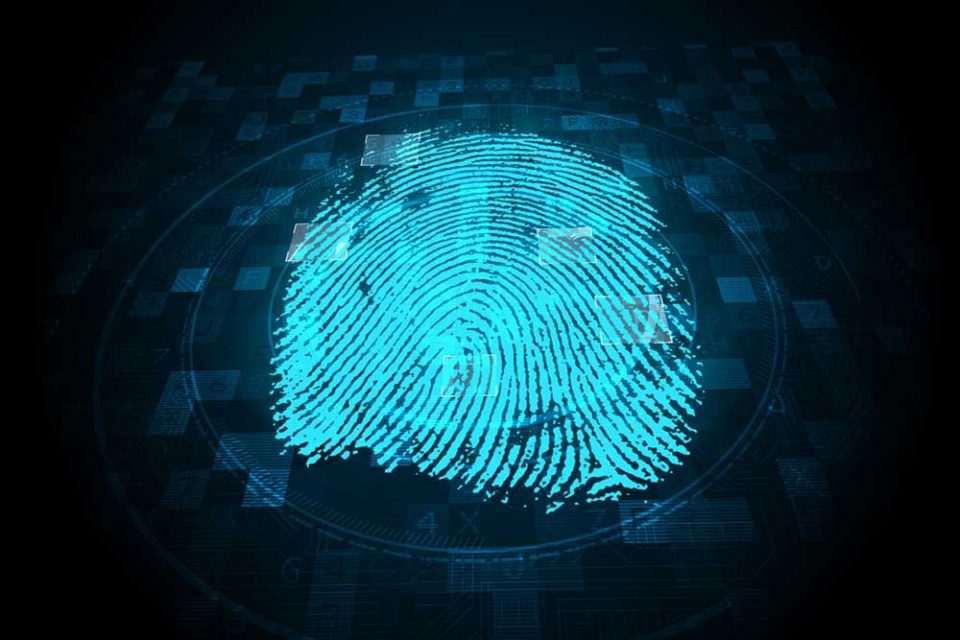In 2017, the Parliament of Jamaica passed the National Identification and Registration Act (NIRA)establishing a National Identification System (NIDS) which is to come into effect in September 2019. It is vital that every Jamaican, especially those living overseas, in foreign and abroad learn as much as they can about NIDS and how it will affect them and their families back in Jamaica.

NIDS: THE BASICS
NIDS – National Identification System to digitally register ALL
Jamaicans including children, living in Jamaica and anyone
resident in the country for more than 6 months. It is a
requirement by law and non-enrolment will be a criminal
offence. Jamaicans living outside the country who wish to do
business in Jamaica with the government will need to enroll
like all Jamaicans to buy and sell land, get permits to build a
house, open a bank account, get a passport, bury a relative and
so on………………. There are no facilities to register abroad so
this will have to be done on arrival at a specially designated
centre.
NIN – National Identification Number to be assigned to each person
NIC – National Identification Card to be supplied to each person
bearing the NIN, photo, address and signature
INFORMATION YOU WILL HAVE TO GIVE TO REGISTER
- Name, address, date time and place of birth, names of parents, sex, height, nationality, marital status, date and place of marriage, date of divorce
- Photograph, fingerprint, eye colour, signature. May also be required to give Retina or iris scan, vein pattern, footprint, toe print and palm print
- Employment status, race, religion, education, profession, occupation, telephone number
SOME ASPECTS OF NIDS THAT CONCERN JAMAICANS IN JAMAICA AND SHOULD CONCERN JAMAICANS LIVING IN FOREIGN
- You cannot get a birth certificate or a passport without a NIN
- Your relative MAY not be able to receive money sent from overseas without a NIN
- As a Jamaican, you will not be able to buy land in Jamaica without a NIN BUT a foreigner can
- You cannot vote in Jamaica without a NIN
- You or your relative cannot get medical attention at any public facility except it is an emergency
WHAT CAN HAPPEN UNDER NIDS
The proposed law does NOT protect Jamaicans from:
- Private sector companies requiring you to produce a NIN to open a bank account; register your child at school; open a business; rent a property; buy insurance……
- The government sharing your information without your consent
- The government knowing all your business
- Unscrupulous persons or organizations or foreign governments and agencies from getting access to your personal information
NIDS, BIDS AND THE RIGHT TO PRIVACY
One of the areas of NIDS least understood by the ordinary Jamaican is the Biometric Identification System (BIDS), that is the information you have to give when registering – that is your fingerprint, eye colour and in some cases vein prints and retinal eye scans. This is an especially important aspect of the NIDS process because it is the area that affects an individual’s right to privacy.
WHAT IS A BIOMETRIC IDENTIFICATION SYSTEM?
Biometric Indentification Systems or BIDs, are mandatory (or near mandatory) national identification systems which require citizens of the state , and in some cases a wider class of individuals , to enroll in the identification system and in so doing provide his or her biometric data. To distinguish BIDS from conventional identification systems, the ‘biometric data’ which makes a system fall within the category of a ‘BIDs’ will be limited to unique physiological patterns such as fingerprints, vein prints, and retinal and iris scans, therefore excluding photographs and signatures. In most cases, the biometric data under BIDS is stored in a central government database.
Attorney at law and lecturer in the Faculty of Law at The University of the West Indies Mona, Andre Sheckleford explains that Jamaica is one in a line of many developing states that have implemented BIDS in recent years. Jamaica is also the third Commonwealth state in which a constitutional challenge to a BIDS has been raised following the examples of Mauritius and India. Attempts to implement a BIDS in the UK have been shelved (temporarily?) after widespread public objection. The Full Court of the Jamaica Supreme Court is currently hearing arguments on the constitutional validity of Jamaica’s NIDS.
FEATURES OF THE JAMAICAN BIDS
Required items of information
Jamaica’s approach has been to provide a comprehensive closed list comprising fingerprint and eye colour (must be included); retina or iris scan; vein pattern and if neither retina or iris scan available – footprint, toe print and palm print; any distinguishing physical feature and blood type (may be included).
Enrolment
Enrolment in the programme in Jamaica is mandatory and non-enrolment is a criminal offence.
Presentation
All registered individuals i.e. citizens and residents, are required to produce their identification card (or number) for the delivery of any good or service from a government entity. Businesses e.g. Banks and other private sector organizations may include such requirements if they so desire.
Storage and Disclosure
Attorney Sheckleford says Storage and Disclosure elements are key in considering a BIDS. He points out that Jamaica’s BIDS provides for centralized storage. However, the relevant authority is not to disclose identity information unless the individual so requests, as in a case to facilitate the identification of unknown deceased or missing persons, or the disclosure in pursuant to a court order. In relation to the lattermost, the bases for the application are that the disclosure is (a) necessary for the prevention and detection of crime, (b) in the interests of national security, (c) during a public emergency or (d) to facilitate an investigation in relation to the proceeds of crime. The Act however, fails to create any exemptions on disclosure which may work in a practical manner for the purposes of authentication of identity, a fact which undermines that validity of the system as one for reliable identification.
Right to Privacy
Preserving one’s individual privacy is a right that is dearest to most persons and this is the area that is of greatest concern among the voices that have been raised in objection to the NIRA in its present form.
Sheckleford explains that the type of privacy primarily affected by BIDS may be termed ‘informational privacy’, that is, privacy concerning an individual’s information. The Jamaican BIDS raises privacy considerations in three main ways:
- The taking of fingerprints will require individuals to attend upon certain places to place their body in certain positions, therefore affecting the inviolability of the physical body, tied to the notion of physical autonomy and self-determination of the body, which elements of the right to privacy are intended to protect.
- The mere storage of personal data ought rightly to be treated as an interference with the right to privacy, therefore needing justification and further, needing to be proportionate to the goal served by the proposed justification.
- ‘Passive monitoring’ is the collection of large categories of information which can be later analysed to discover an individual’s movements and habits. This is a grave risk that arises from BIDS because the identification card or number is required to be presented upon engagement with any public body in seeking a good or service, and private bodies may require the same if they desire. Every use of the identification card or number can give rise to a transaction record which is almost undoubtably stored in a database. There are no controls on the disclosure of this type of record or who can access it and what can be done with such data! There are also no controls on the type of public bodies which will require the production of the card/number, nor any limitation on the types of goods or services. Also, quite worryingly, there are no controls on which private entities may require production of the card/number and for what services such production will be required. In other words, the Act in its current form allows a very wide cross section of actors to require the production of the card/number, without limitation of the circumstances within which such production is required. It therefore opens the door for individuals to create precise trails of the activities and habits in which they engage – all this data being in the hands of the state without controls or limitations on the access to or use of such data.
An issue that is of concern to Sheckleford and others is whether the objectives of the new legislation are sufficiently important to justify the kinds of measures described above that have the potential to infringe on a citizen’s constitutional rights. Section 3(d) of the ACT indicates that the goal is to provide a reliable system of national identification and section 3(c) highlights the aim of having statistical information regarding life in Jamaica. This latter objective can hardly be said to be ‘sufficiently important’ so as to infringe a constitutional right. At the same time, the Act does not express national security as an objective. A national security objective arises at best in an ancillary manner from provisions allowing disclosure on national security grounds.
Sheckleford also questions whether the system produced by the Act can be said to be rationally connected to the goal of reliable identification. This he sees as the greatness weakness in the Act because, as noted earlier, the Act does not have provisions for disclosure to allow for identification. There is therefore a faulty statutory framework for an effective identification system opening the argument that there is no rationale connection. The argument may then go further that the national security objective is ancillary to the identification objective and therefore there is no rationale connection for the ancillary objective.
He goes on to argue that “even if the Act clears the hurdle of rationale connection, the question of whether the measure is the least infringing means of achieving the goal of reliable identification arises.” In this regard, the vast quantity of information collected under the BIDS becomes a factor as it then becomes difficult, for example, to see why all the items of biographic information and certain core biometric information are required for a system of reliable identification.
Sheckleford concludes by declaring that “BIDS, by their very nature, are intrusive and raise ‘Big Brother’ concerns.” BIDS must therefore have solid justifications and be deployed in a proportionate manner. The privacy concerns raised by the NIDS are serious – from affecting the physical person by requiring the body to be placed within certain apparatuses, to storage of sensitive personal data to the passive monitoring which arises by way of individuals’ interactions with public and private bodies. While reliable identification is a sufficiently important objective so as to infringe privacy rights, a question arises as to whether the Act is rationally connected to that objective. And even if the Court were to cut down the scope of the information required, as well as to place limitations on the circumstances in which the identification cards/numbers are required, the concerns on the lack of controls of disclosure of transaction data would still be alive.
Editorial Note

The above section under the heading “NIDS, BIDS And the Right to Privacy” is substantially based on an article entitled Jamaica’s National Identification System VS Privacy Rights by Andre Sheckleford.
Jamaicaglobalonline is grateful to Mr Sheckleford for allowing us to quote extensively from his article.
Andre Sheckleford, LLM (Cantab), LEC(NMLS), LLB (UWI), BSc (UWI
Is a lecturer in the Faculty of Law at the University of the West Indies, Mona Campus and a commercial litigator with the Kingston firm Hart Muirhead Fatta. His research interests are International Economic Law, Property Law and relationships between law and information.




10 comments
This is clearly an abuse by the Jamaican government that are being paid by the Chinese to suppress their citizens and dictate how they live and breathe and work!!!!Jamaicans BEWARE!!!!!. The port of Kenya was seized by the Chinese after they offered to help them build it. When the Chinese felt the nine the canyons weren’t paying their moneys on time they swooped in and the Chinese now OWN the port of Kenya!!!! The stupid government of Jamaica needs to cut ties with the Chinese now !!! Do you all see who’s flag is flying on Edward SiAGO highway??? A Chinese flag not a Jamaican. This is only the beginning. China is as invasive and dictatorial and suppressive as the Jamaican government is now becoming. Independence from England…now owned by the Chinese. They’re taking our land they are taking our identities we as a people will no longer exist! Jamaican people rise up !!!
This is Government abuse of Power! All these Scans are not needed for a National ID Card. This should be challenged in court.
This is a gross abuse of power and infringement of the sovereignty of each Jamaican. America and other first world countries are nowhere near as invasive as this system and the fact that system prevent Jamaicans from owning property while Foreigners are free to buy property and land shows you this nothing more than a more restrictive law to hold back Jamaicans from rising from poverty. Your government is not looking out for your self interest but that of its foreign overseers. I speak as Jamaican who is now an American Citizen this system is nothing but a way to restrict the wealth accumulation and financial advancement of Jamaican citizens. Look at how many Jamaican scammers have been arrested in relation to the pedophiles from foreign countries and the scammers of foreign countries that preyed upon Jamaican Citizens for decades with little to no justice being brought against them for their atrocities. For Jamaicans to continue the practice of allowing these foolish leaders to keep them in bondage is to damn their future generations to a life of misery.
I have no problem with a new ID system but the biometric data requirement is very concerning. Why put all this burden on this POOR third world country. Richer and more developed countries are not doing it so why Jamaica.
Remind me again why it’s necessary …is the TRN of no use or insufficient now to conduct business in Jamaica?
Why a Biometric Data Section, I will not allow any Radiology equipment to explore my body for governmental data to be stored.
The United States and all developed countries do have national identification systems. That’s critical for simple systems like having a credit management and effective tax administration. Every person in the United States have a social security number and over time biometrics are collected through doing business like traveling or finger prints for banking. So the notion of what Jamaica is doing is an over kill is unfounded and uninformed.
Dude what are you smoking? The American Government is not this invasive! This new Jamaican NIDS is crap! They need the toe prints and eye scan? For what? The only time the American Gov have your prints is when someone is arrested! Or for Immigration to prove your identity. So cut the crap out! This is an invasion of privacy, they don’t need all this personal information to issue a national ID card! Look at all the restrictions that are attached. This is an over reach by the Gov. This sounds like the Chinese Social Score System. This is nuts!
I am not opposed to a National Identification System just to the level of intrusiveness and trampling on my right to Freedom that the Bill in it’s present form will unleash.
Why a small country needs all this weight on its citizens, when larger and far more prosperous ones do not saddle their own with this burden?
Comments are closed.